Hyundai Alpha Tuning
"All you need to know about tuning and performance parts on the Hyundai Alpha engine!"
We review and look at Alpha tuning and show the best upgrades.
Hyundai Alpha are popular tuning projects and with the right performance upgrades like a remap, turbo upgrades and camshafts you will noticeably improve your driving opportunities.
History, Power & Specs of the Engine
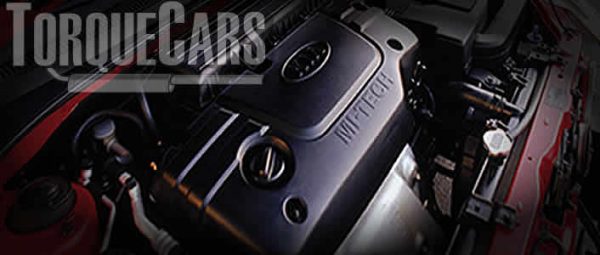
- G4EA 1.3 Carb 71hp 81lbft
- G4EH 1.3 Injection 83hp 86lbft
- G4EK 1.5 90hp 97 lbft (There was also a turbo version released)
- Alpha-II G4FK 101 hp 100 lbft
- 1.5 Alpha-II G4FK DOHC 106 hp 101 lb-ft
- 1.6 Alpha-II G4ED 103 hp 105 lb-ft
- G4EE Alpha II 1.4
Best Alpha parts
When talking about the best top for your Alpha engine, we are going to focus that give the biggest return for your cash.
Significant gains can be made from cam upgrades. Altering the cam profile alters the intake and exhaust durations on the engine and can dramatically change the bhp and power output.
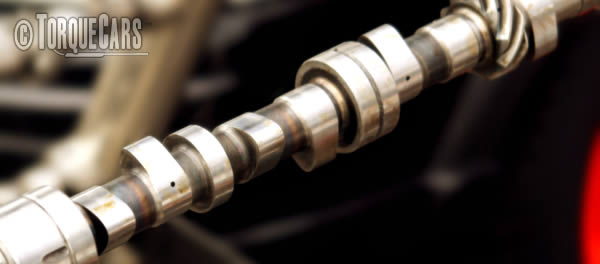
Fast road cams normally boost the torque throughout the rev band, you could drop a little low end power but your top end will be higher.
Competition cams, boost the top end band but as a result the car will not idle smoothly and low end power nearly always suffers.
On a daily driver must carefully try to match your torque band to your driving style.
I would be surprised if you have found a Competition cam is a pleasure to live with when in heavy traffic because low end power will be very lumpy. Competition cams are designed for maximum power at the top end of the RPM range, a place that most daily commutes will not permit!
Different Alpha engines respond better to different cam durations so set your engine up on a rolling road.
The engine timing and injectors and fuel pump also will say much on the bhp gains you'll achieve.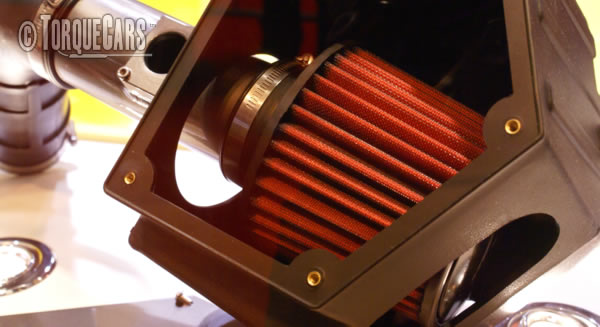
Altering valve durations can alter the bhp band and on most engines the exhaust and intake durations do not need to match, although most cams and tuners use matched pairs there are some advantages to extending the intake or exhaust durations.
Please watch our video which covers the 5 principles of tuning your car. Be sure to keep up with our latest YouTube content and subscribe.
Best Engine Mods for your car
- Engine Tunes - engine tuning/remapping provides the most advantage in terms of cost savings, aftermarket ECUs, and piggyback ECUs are all alternatives.
- Fast road cams are one of the most significant mechanical changes, but they must be installed by someone who knows what they're doing and they are not always easy to source but you might find a local firm to regrind a stock camshaft.
- Intake and Exhaust - Note that on their own these mods will NOT ADD POWER in most cases, but they can help enhance power after other mods by removing the restriction.
- Upgrades to turbochargers and superchargers - forced induction is the most efficient approach to increase air supply, allowing you to burn more fuel and make more power. It is one of the most costly upgrades but provides the best gains.
- Head work - The goals of porting and flowing the head are to get air flowing into the engine while removing flow restrictions and turbulence.
Typical stage 1 mods often include: Sports exhaust header/manifold, Remaps/piggy back ECU, drilled & smoothed airbox, Fast road camshaft, Panel air filters, Intake manifolds.
Typical stage 2 mods often include: fuel pump upgrades, Sports catalyst & performance exhaust, high flow fuel injectors, Ported and polished head, induction kit, Fast road cam.
Typical stage 3 mods often include: Engine balancing & blueprinting, Competition cam, Crank and Piston upgrades to alter compression, Twin charging conversions, Adding or Upgrading forced induction (turbo/supercharger), Internal engine upgrades (head flowing porting/bigger valves).
ECU flashing will help unlock the full potential of all the modifications you've fitted to your Alpha.
(In some cases, as the factory ECU is locked flashing is not an option, so an aftermarket ECU is the route to take, and many of these will outperform factory ECU's but make sure it has knock protection and that you get it setup properly.)
It will usually give you around 30% more power on turbocharged vehicles and 15% on NA (naturally aspirated) engines, but you mileage will vary depending on the modifications you've done and the condition of your engine.
It is the main goal to any tuning task to push air into the Alpha engine
Air Intake manifolds transmit the air from the air cleaner and allow it to be pulled into the engine cylinders.
Design and rate of flow of the Air Intake manifolds can make a substantial change to fuel atomisation on the Alpha.
Commonly we find the manifolds are improved through a performance upgrade, although some manufacturers provide decently flowing headers.
Big valve conversions on the Alpha, getting 3 or 5 angle valve jobs and porting and head flowing will also improve bhp and torque, & importantly will make space for increasing the bhp and torque increase on other parts.
Turbo upgrades
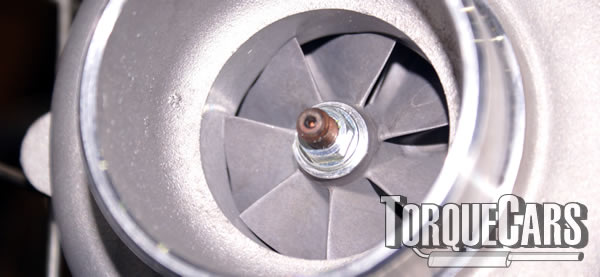
NA (naturally aspirated) engines need quite a lot of work when you add a turbo, so we have a separate guide to help you take into account the pros and cons of going this route on your Alpha
The more air to get into an engine, the more fuel it can burn and uprating the induction with a turbocharger upgrade makes massive power gains.
If your motor has forced induction parts are simpler to install and you will discover turbocharged engines will have uprated components.
However you'll find engines will need better parts at higher power limits
Research these restrictions and fit better quality components to survive the power.
We've seen car owners spending a lots of money on turbocharger upgrades on the Alpha only to experience the whole thing explode on it's first outing after it's been completed.
Big turbo units tend to suffer no power at low rpm, and low capacity turbo units spool up more quickly but do not have the high rpm engines power gains.
Thankfully the selection of turbos is always increasing and we commonly find variable vane turbos, where the vane angle is altered according to speed to lower lag and increase top end bhp.
Twin scroll turbos divert the exhaust gases into a couple of channels and feed these at differently profiled vanes in the turbocharger. They also improve the scavenging effect of the engine.
It is not unusual that there's a limitation in the air flow sensor AFM/MAF on these engines when considerably more air is being drawn into the engine.
Going up you'll find 4 bar air sensors coping with quite large power gains, whereas the OEM air sensor limited bhp at a much lower level.
Adding a supercharger or additional turbo will make large bhp gains, although more difficult to get working. We have a twincharger bhp adding guide if you want to read more.
Fuelling
Don't forget to boost the fuelling when you are increasing the performance - it makes the car more thirsty. 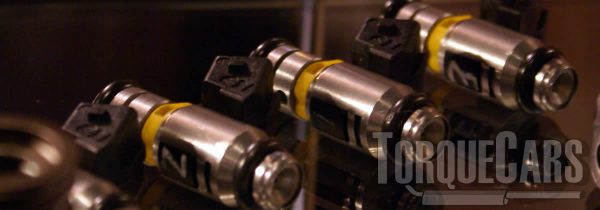 We would recommend you to over specify your injectors flow rate.
We would recommend you to over specify your injectors flow rate.
The accepted safe increase is to add another 20% when buying an injector, helps cope with injector deterioration and gives you some spare capacity should the engine require more fuel.
We think this one is common sense, but you'll need to match your fuel injector to the type of fuel your car uses as well.
Exhaust
You only need to boost your exhaust if the current exhaust is actually causing a restriction.
On most factory exhausts you'll see your flow rate is still good even on modest power gains, but when you start pushing up the power levels you will need to get a better flowing exhaust.
Don't go with the widest exhaust you can buy you'll slow up the exhaust flow rate - the best for power gains are usually between 1.5 to 2.5 inches. It is the shape and material more than the bore size.
Typically exhaust restrictions are traced to the catalyst installed, so adding a faster flowing high performance aftermarket one will improve air flow, and rather than doing an illegal decat, will keep the car road legal.
Weak spots Issues & problem areas on the Alpha
The Alpha engines are generally reliable and solid units, as long as you follow the manufacturers service schedules, and use a good quality oil to ensure longevity. Few problems should happen as long as they are regularly serviced and maintained.
Carbon build up in the head, particularly around the valves which will sap power or create flat spots, this is a larger issue on direct injection engines but should be looked out for on all engines. We have tips on removing carbon build up.
Some of our members have had issues with flat spots or glitches after applying mods and upgrades or tuning, this is not usually related to this engines design, so instead see our article on diagnosing flat spots and problems after tuning which should help you get the bottom of this issue.
Regular oil changes are vital on the Alpha , especially when tuned and will help extend the life and reliability of the engine.
If you would like to know more, or just get some friendly advice on Tuning your engine please join us in our friendly forum where you can discuss tuning options in more detail with our owners. It would also be worth reading our unbiased tuning articles to get a full grasp of the benefits and drawbacks of each modification.
Please help us improve these tips by sending us your feedback in the comments box below.
We love to hear what our visitors have got up to and which upgrades work best for you on your car. Which helps us keep our guides and tips up to date helping others with their modified car projects. Your feedback and comments are used to keep this page up to date, and help improve the accuracy of these articles which are kept updated and constantly revised.
If you've enjoyed this page we would be very grateful if you could share a link to it on your favourite forums or on your social media profiles, it helps us keep going.
Please Check out my YouTube channel, we're regularly adding new content...
PLEASE HELP: I NEED YOUR DONATIONS TO COVER THE COSTS OF RUNNING THIS SITE AND KEEP IT RUNNING. I do not charge you to access this website and it saves most TorqueCars readers $100's each year - but we are NON PROFIT and not even covering our costs. To keep us running PLEASE Donate here
If you liked this page please share it with your friends, drop a link to it in your favourite forum or use the bookmarking options to save it to your social media profile.
Feedback - What do You Think?
Please use our forums if you wish to ask a tuning question, and please note we do not sell parts or services, we are just an online magazine.
Help us improve, leave a suggestion or tip
Please watch this video and subscribe to my YouTube channel.

 Click to accept YouTube Cookies & Play.
Click to accept YouTube Cookies & Play.